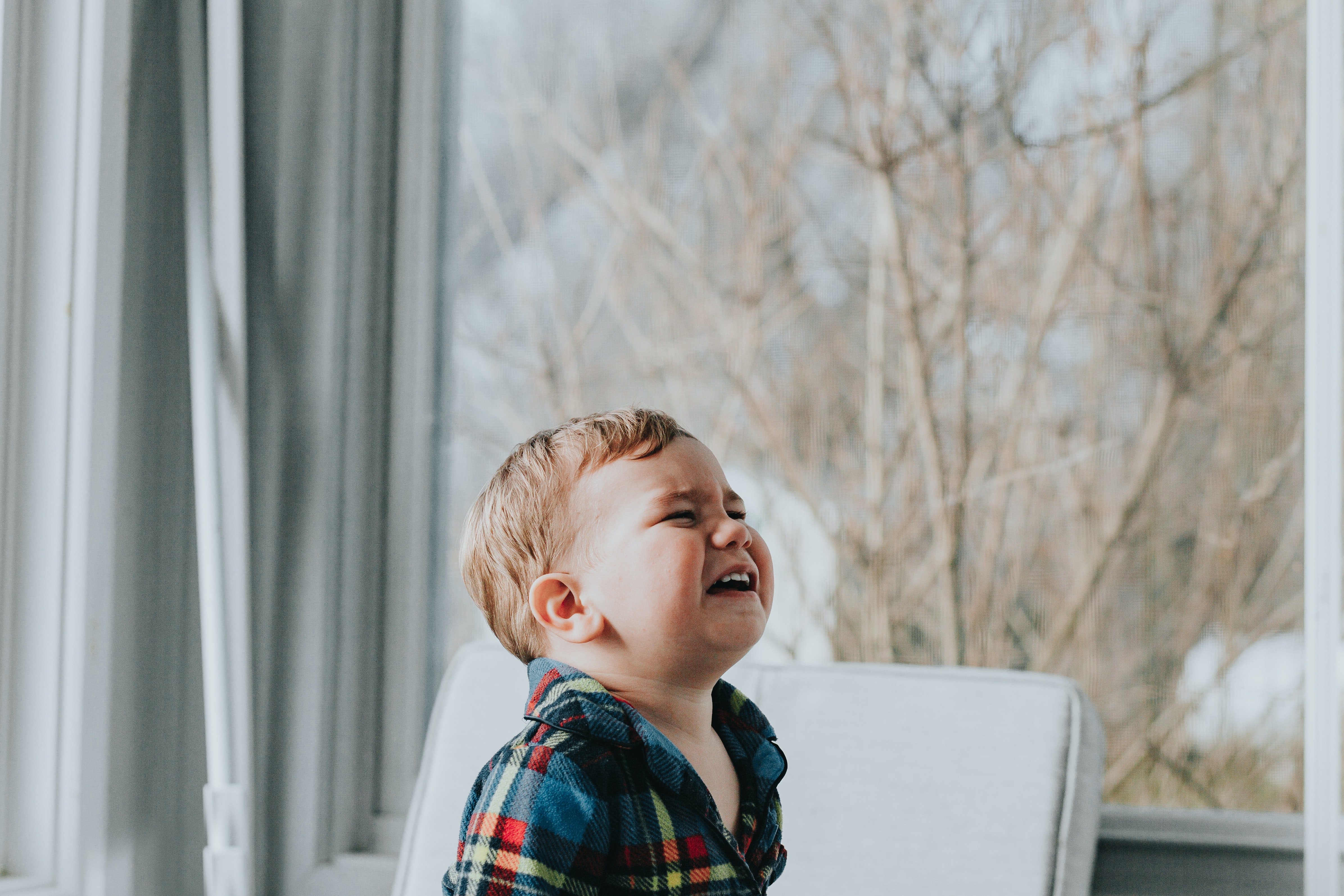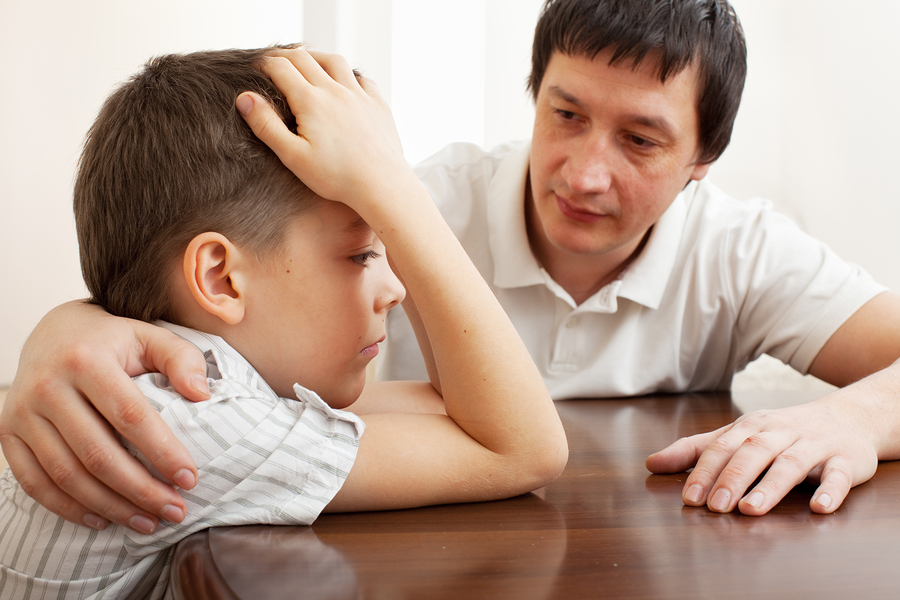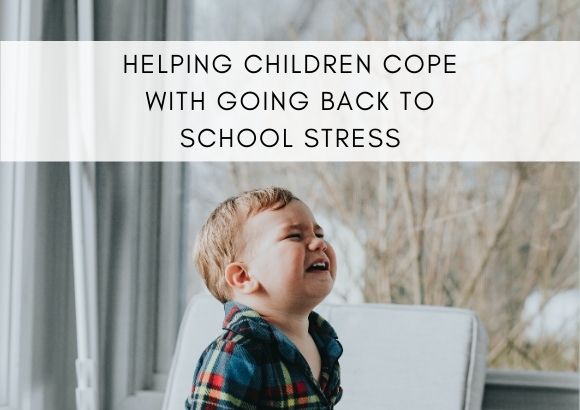Helping Children Cope with Going Back to School Stress
 Schooladvisor Team
Schooladvisor TeamThere has been a lot of talk about keeping children safe upon returning to school and rightly so with the pandemic still spreading wildly in our community. But something that is equally important to address is the emotional and mental well-being of the students as they transition back to school.
Recently, a virtual discussion led by Sherlin Chang, Assistant Manager Early Years Education, Beaconhouse Malaysia and Rachel Khong, Acting Head of School, Beaconhouse Newlands Early Years (BNEY) Ampang has been held to address the way parents and teachers can help to tackle emotional and mental stress in children.
With combined experience of 30 years in the education sector, they have first-hand experience in dealing with children for quite some time and “have dealt with challenges and pressing matters even more so in the past year,” said Sherlin.
The impact of COVID-19 is not only felt by adults, but also the children. The major and sudden switch from learning at school, to learning remotely and then back to school again is not an easy transition for kids and it is extremely challenging for them.

Photo by Marcos Paulo Prado on Unsplash
The impact of COVID-19 on Children:
Children’s Development
The most affected areas are the social and emotional development. As a young kid, they have the tendency to discover the world around them through the sense of touch. Thus, this is the reason why it is tough for them to understand the circumstances that we are in right now. Children create bonds with peers and adults through tactile actions.
Teachers face challenges at school as they try to navigate the students to practise physical distancing, especially at the beginning. “Teachers have to constantly remind the students for a couple of months before they get used to the Standard Operating Procedures (SOPs),” added Sherlin.
Learning to Unlearn
The other challenge is reversing children’s learning. Pre-COVID, parents would often find colour pencils missing from their child’s bag or an eraser that they have never bought slipping into a pencil case because children like to share their belongings with their friends.
We have always highlighted to children that sharing is caring but now, due to the pandemic and SOPs that need to be followed, the teachers are trying to reverse their learning and make the children understand the situation that we are in right now. One of the things the teachers do is allocating each child their individual materials in their own basket to discourage them from sharing common materials between themselves.
Separation Anxiety Among Kids and Parents
Having been at home for a year with parents, the teachers have witnessed children coming in with separation anxiety from their parents. The separation anxiety is not only felt by the children, but also the parents. The environment of the school which is different from the comforts of their own home causes them distress. They end up crying or get cranky.
Children are Dependent on Parents and Helpers
These children are very dependent on their parents or helpers who have been by their side the entire time throughout the year. This situation results in them not being able to do simple things like tying their shoes or zipping their bag.
Addicted to Gadgets
Furthermore, they are also extremely addicted to gadgets. As the mode of learning has changed in the education system, there is no doubt that technology and gadgets become children’s best friends.
These challenges have piled up to mental and emotional stress as they head back to school. “It is not easy to say this is a new normal to children,” said Sherlin. The new normal that requires the children to follow SOPs and isolate at their designated table is not the usual way of learning for them.
It is vital that parents and teachers alike pay attention to the signs and symptoms of mental and emotional stress that the students might experience during this transition period.
Signs and Symptoms of Mental and Emotional Stress in Children:
1. Crying prolongs for more than 10 minutes which is not the usual pattern of crying for children.
2. They don’t have an appetite to eat. As Sherlin has actively observed the children’s behaviour from when remote learning started, she remembered some kids licking chocolates while attending classes at home. This habit has been built at home and some adjustment needs to be done. Oftentimes, the teachers will hear, “When is snack time? I’m hungry.”
3. Some children also experience the lack of motivation to learn at school. The popular phrases that the teachers always hear are “I don’t know” or “I don’t want”.
4. Talking too much is also a sign that your child is experiencing mental and emotional stress. They tend to consistently interrupt their friends and talk non-stop even when they do not have to.
5. Another destructive sign of stress that you might not expect is being overjoyed. While their behaviour portrays excitement, this is just their way of covering their anxiousness of being in a new environment, surrounded by unfamiliar faces.
6. They cannot remain in one place for a certain period of time and going to the toilet is a great excuse for them to roam around and escape their feeling of nervousness.
7. Extremely sleepy. This is due to the fact that their sleeping time is being affected at home. After spending a year adapting to remote learning, they are used to waking up 15 minutes before classes. Meanwhile, physical class would require them to wake up an hour earlier to shower and get ready to go to school.

Photo by Florida Counseling Centers
Advice for Parents Who are Struggling to Tackle this Problem:
Don’t Command.
As parents or adults, we tend to give commands or use negative statements to get our message across. “No!”, “Don’t do that!” or “Stop it!” are very commonly used in our everyday lives but they are also negative in nature. Instead of commanding, give them options by saying “Maybe you can do this instead of doing that,” when you want to stop your child from doing something. This way, children can take it with open hearts rather than feeling like they are obligated to do something.
Guide Them to Use Gadgets in Moderation.
Telling your child they are spending too much time on gadgets and that you need to confiscate their phones or iPad will not be the best solution to tackle this problem. As an adult, you should guide your child to use gadgets in moderation. This can be done by preparing a schedule that has a specific routine for when they can use these devices. Which brings us to the next point…
Prepare a Schedule at Home.
While we are not trying to encourage children to feel burdened at home, having a schedule will tremendously help your kid to adjust to their routine at school. How can we fully utilise a schedule at home? Sherlin advises parents to use visual schedules for their young children because pictures and colours are more appealing to children. Schedules can also help your child to be independent and responsible for their behaviour especially regarding their bedtime.
Let Them Experience Stress and Address it.
As parents, it is important to allow children to feel stress as this is human emotion after all. Your job then is to help them acknowledge this feeling and address it so you could understand their emotional and mental needs better. By letting them experience this emotion, you will be able to assist them in making healthy choices in order for them to let go of that emotion.
Be Open Minded.
As a parent, a good listening skill is vital to tackle this problem. Parents have to listen with the objective to listen and then reply accordingly. If your child senses your response as a condescending one, they might not want to share with you anymore in the future. Most of the time, children dealing with problems would be happy to open up if approached delicately and sincerely. Asking simple questions like “How’s your day?”, “How are things going at school with your friends and studies?” will give them the chance to share their thoughts and opinions about their problems. Parents and educators need to create an environment that enables children to be more open about their feelings.
All in all, teachers and parents need to work closely to address these issues and how to overcome them. The cooperation between the two parties at this phase are very important to make sure children stick to their school routine even when they have to learn remotely.

